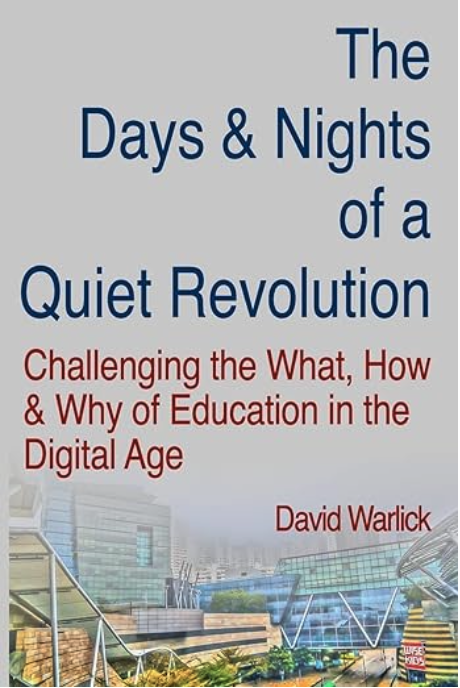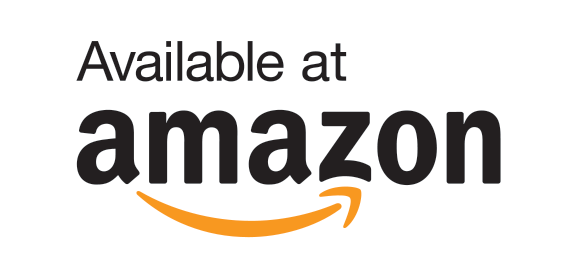Welcome to WordPress. This is your first post. Edit or delete it, then start blogging!
Category Archives: Uncategorized
UCET Conference in Salt Lake City, Utah
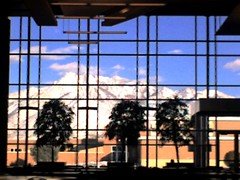 I’ve wanted to present at this conference for many years. It’s one of my favorite states to visit and just drive though (though I’m not doing any driving this trip) and it’s one of those places where a conference with a thousand attendees is impacting on a sizable percentage of the state’s entire education community.
I’ve wanted to present at this conference for many years. It’s one of my favorite states to visit and just drive though (though I’m not doing any driving this trip) and it’s one of those places where a conference with a thousand attendees is impacting on a sizable percentage of the state’s entire education community.
My keynote address is called Teaching & Learning on the Edge of Change. It’s an old presentation that was originally just a review of tech trends and some really outlandish stuff about nanotechnology, quantum computers, and the approaching singularity. Fascinating stuff, but of very little practical value to classroom teachers. So I’ve merged the slides from that presentations to exist within my Telling the New Story structure of looking at how the following aspect of what, why, and where we do what we do:
The market place
What we value (our children)
And what we can point at that is related directly to what happens in classrooms
I am also doing just about every other presentation that is listed on my professional web site. So here are my sessions, and links to the wiki handouts.
Midwest Education Technology Conference — St. Louis
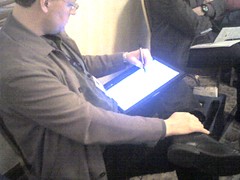 This is an exceptional annual conference, organized and maintained by the Cooperating Schools Districts, a regional service center in Missouri. There are some amazing presenters and the topics include emerging technologies, predominantly Web 2.0. I will be telling the new story of a changing market place, changing children, and a rapidly changing information landscape that should be entirely reshaping our schools. Among my stories will also be Web 2.0 with some brand new slides that I built while flying here yesterday, and podcast. By the way, it seems that every other presentation is about podcasting here — it continues to be the next big thing.
This is an exceptional annual conference, organized and maintained by the Cooperating Schools Districts, a regional service center in Missouri. There are some amazing presenters and the topics include emerging technologies, predominantly Web 2.0. I will be telling the new story of a changing market place, changing children, and a rapidly changing information landscape that should be entirely reshaping our schools. Among my stories will also be Web 2.0 with some brand new slides that I built while flying here yesterday, and podcast. By the way, it seems that every other presentation is about podcasting here — it continues to be the next big thing.
Here are links to the wiki handouts for my three presentations:
Dunedin, New Zealand
Primary school principal and former Cluster Facilitator, Greg Carroll, has arranged for a day of presentations here in his city of Dunedin. There will be approximately 50 attendees from around the South Island and I am presenting in a magnificent hotel in the down town, which was built in 1862. I love it! They have WiFi…
My topics will be literacy, millennials, and Web 2.0 — my favorites. I hope to have time to truly expand on these topics, rather than the quick conference presentations, but most importantly, I hope to open things up a bit for some conversations — which I’d like to record for an upcoming podcast.
So here are the links to the Online Handouts:
- Literacy & Learning for the 21st Century
- Classrooms of Millennials
- Harnessing the New Shape of Information — Web 2.0
- Session Notes — Wiki notes from the attendees
Learning@School Conference: Rotorua, New Zealand
 I spent about an hour at the conference yesterday afternoon and could feel, already, the incredible energy of this event and of educators, traveling across this small, yet magnificent country, to learn about modernizing classrooms. I am overwhelmed, and thankful for this energy, as I have only a little left after 31 hours in transit from Richmond, Virginia.
I spent about an hour at the conference yesterday afternoon and could feel, already, the incredible energy of this event and of educators, traveling across this small, yet magnificent country, to learn about modernizing classrooms. I am overwhelmed, and thankful for this energy, as I have only a little left after 31 hours in transit from Richmond, Virginia.
At this conference I will be talking about the new story, and from my conversations with conference attendees and planners last night, inventing and telling a new story about teaching and learning is a challenge for all of us. I will also be doing a number of presentations about the changing shape of information, talking about collaboration with wikis, playing (and working) information with video games, and the new glue of the web, RSS.
As a reminder, if you plan to blog or photograph my sessions, please tag them with learningatschool and with the suggested tags of that session.
So here are the links to my online handouts:
Our classrooms — what they look like, how the furniture is arranged, what teachers and students do, what is taught, how it is taught, and why — are all modeled after old and outdated stories that are still being told by our culture. We must change these stories and tell new ones, based on a new world, an unpredictable future, almost unlimited opportunities, a new kind of student, and compelling new learning experiences that have never been possible before. (tags: new story warlick)
One of the pivot points of the new read/write Web is wikis. Originally invented in 1995, wikis have recently emerged as the poster-child of the Web 2.0 movement. This session will provide a general overview of the wiki style, ranging from small group collaborations to global collaborations to global encyclopedias. Participants will learn about the characteristics of wikis, how to operate and manage them, and a variety of classroom applications. Come learn how to create a wiki site – for free. (tags: wiki session warlick)
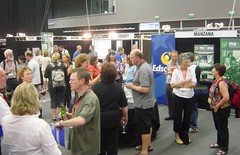
“Edutainment†is a term that has frequently been used to describe computer applications designed to make learning fun – and the word has not always been used with the best intentions. In recent years, however, educators have begun to take a serious look at video games and the video game generation and to reconsider the role of technology, fun, and serious video gaming within the context of formal education. This presentation will provide an overview of various video game genres, some of the latest writings on video games in education, and some spin-off activities that will literally amaze you. The presenter will also attempt to break down some of the characteristics of video gaming that seem to make the practice such a compelling learning experience for youngsters — under 30. (tags: games session warlick)
The nature of information has changed dramatically since the advent of the World Wide Web. However, that change has accelerated during the past 12 to 18 months, thanks to a family of web tools that are so changing the way that we think about information that it is increasingly called, Web 2.0. These tools include blogging, podcasting, social networks, and wikis, to mention only a few. However, the real magic of the New Web, the glue that holds it all together, is a simple, yet fundamentally revolutionary concept usually called RSS. Learn about this concept and how it can be used to manage instructional materials in brand new ways. Prepare to be on the edges of your seats. (tags: rss session warlick)
Maggie Walker Governer’s School — Richmond, Virginia
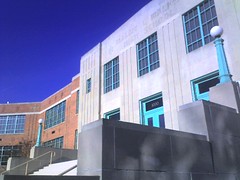 |
| Obligatory Picture Goes here! |
I’ve been looking forward to today for a long time. Patti Chapel, the school’s technology coordinator (or related title) has been attending the North Carolina Educational Technology Conference for many years, and has been attending my workshops and presentations just about each of those years. So it will be an honor to work at her school, about which I have heard so many great things. These will be really good teachers who teach really smart students.
My job is to convince the educators here to make use of technology. That, of course, will not be my message. It will be about the information. The very nature of information has changed dramatically in just the last decade — and the rate of change is accelerating. The fact is that the information experience that MWGS students enjoy at home is about as advanced, as compared to their classroom experience, as if the printing press were to be compared to Cro-Magnon cave drawings. Information is increasingly digital, networked, and overwhelming, not to mention the even more interesting characteristics of Web 2.0.
So my message will be to make as much use of the new information landscape as possible. The technology will come along, but not because we are convinced that students will learn better, but that computers and the Internet are the paper and pencil of our time.
Presentations will include:
SAS Techfest 2007 — Shanghai, China
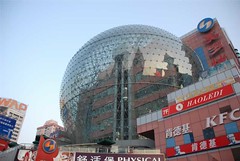 More than anything else, this week in Shanghai, working at the American School here, is going to be an adventure. The city, as much as I have seen in only a few hours, is a curious mix of the old and then new, with the new definitely exercising the upper hand.
More than anything else, this week in Shanghai, working at the American School here, is going to be an adventure. The city, as much as I have seen in only a few hours, is a curious mix of the old and then new, with the new definitely exercising the upper hand.
At the Shanghai American School, I will be conducting a number of workshops, selected by the staff here from my buffet menu. The school will also be holding a tech staff development day, SAS TechFest 2007, for which I will do a number of presentation on Web 2.0 and a keynote address on what all of this revolution in the world of information means to our definitions of literacy. So here are the sessions…
As little as we know about the future, for which we are preparing our children, it is clear that it will be a place that is governed by information. Accessing, processing, building with, and communicating that information will be a major part of our daily professional and personal work.
Being literate in this future will certainly involve the ability to read, write, and work with numbers. However, the concept of literacy in the 21st century will be far richer and more comprehensive than the 3 Rs of the one room school house. This enlightening and thought-provoking address will describe how our notions of literacy must expand to address a rapidly changing information landscape where information is networked, digital, and overwhelming.
Never before has the classroom become so much a part of the world around us. Small digital cameras have affected how we look at war, love, family and friends, poverty, wealth, culture, and nature. People record their environment, share this images with each other and the world, and become archivers of their own experience. This workshop exposes teachers to many techniques for using these amazing technologies to capture the world in sight and sound and bring it into your classroom for exploration, manipulation, and interpretation.
In recent years, educators have begun to take a serious look at video games and the video game generation and to reconsider the role of technology, fun, and serious video gaming within the context of formal education. This presentation will provide an overview of various video game genres, some of the latest writings on video games in education, and some spin-off activities that will literally amaze you.
It is a sign of our times that such an awkward term as “blogging†should integrate itself so quickly and so powerfully into our culture.This session will acquaint educators with the concept of weblogs (blogs), ways that they are affecting many aspects of our culture, and strategies for using weblogs to promote better teaching and learning. Participants will also learn how to provide a safe and secure blogging experience for students.
Podcasting is a rapidly growing practices where individuals, using free and inexpensive hardware and software, produce audio (and video) programs that are broadcast (podcast) to a global audience through the world wide web. Learn how teachers and administrators are using podcasting to promote learning and community involvement and how students are producing their own podcasts to share their knowledge.This presentation is highly interactive, and part of its process will be the production of a podcast program, with involvement from the audience. Great fun!
TCEA Conference in Austin Texas
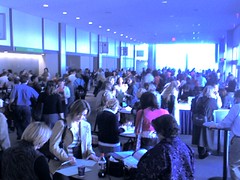 It is a true pleasure and privileged to be presenting at and attending the TCEA conference. I’ll be doing two presentations, Navigating the New Information Landscape, and Classrooms with Millennials (for the SIG-TC group luncheon). This is an exceptional conference and has recently emerged as one of the great state ed tech conferences in the U.S.
It is a true pleasure and privileged to be presenting at and attending the TCEA conference. I’ll be doing two presentations, Navigating the New Information Landscape, and Classrooms with Millennials (for the SIG-TC group luncheon). This is an exceptional conference and has recently emerged as one of the great state ed tech conferences in the U.S.
My first session (Tuesday — 4:00) is about the new information landscape, how information has become increasingly networked, digital, overwhelming, and containerless. Each of these characteristics of todays information environment impacts dramatically on our notions of what it means to be literate today, contemporary literacy.
The second presentation (Wednesday 11:30 – 1:30) will be a keynote address for the annual SIG-TC (Tech Coordinators) meeting. The topic will be Millennials, the children in our classrooms. I will try to define them, describe and demonstrate some of the characteristics of their information experience. Miguel Guhlin has also asked me to say something about School 2.0. It’s an issue that has been talked about a great deal lately, and I decided to blog about it this morning.
Publishing 2.0: Flourishing in the Era of Digital Natives
We all must pay close attention to the digital natives — or millennials. Their information experiences is so dramatically different from the info-landscape that most of use grew up in, that they speak a different language. Marc Prenski says that they work at twitch speed.
Yet, information is critical to their experience. It is information that gives their experience meaning, probably more than any generation ever. It is why, publishers, teachers, and librarians are so important today. But their importance depends entirely on reinventing what they do and how they do it — and that they include, in the very definition of what they are, the almost daily adapting and evolving that is necessary and so exciting in this time of rapid change.
Online Wiki Handouts
TRLD Conference
This is one of my favorite conference, especially among small conference. It is about technology, but also about reading and learning disabilities, two issues that I particularly identify with. My involvement here usually applies to the technology part, and, of course, this year it’s about Web 2.0. I am also delivering a featured address about the millennial generation, and hope to have a few folks in the audience.
Here are the three presentations I’ll be doing during the three days I’ll be here in San Francisco.
Harnessing the New Shape of Information (2/1)
The final activity of this workshop will be a group produced podcast, a conversation about school 2.0.
Teaching & Learning with Millennials (2/2)
This breakout featured presentation will explore three aspects of the millennial experience.
- The economic environment of their time (global)
- The information experience (experiential)
- The classrooms they are learning in (flat)
An Educator’s Guide to Web 2.0 [2/3)
